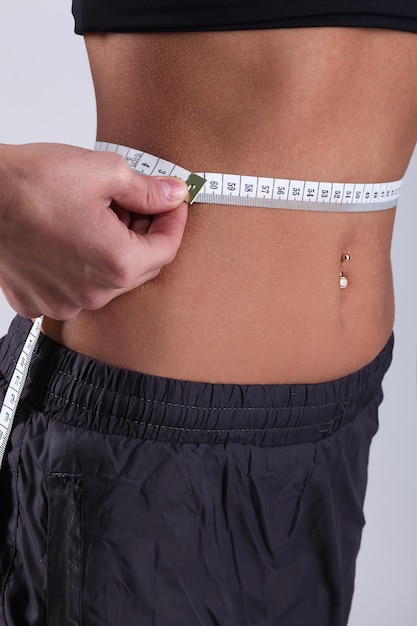
If you’re trying to lose weight, you might think counting calories and eating less is the way to go. However, that’s not always the case, according to Terry Fairclough, a leading personal trainer and co-founder of Your Body Programme.
As a personal trainer, I’ve heard countless opinions on the best diet for weight loss. Should we count calories? Opt for low fat, low carb, or high protein? Should we be fasting or sticking to small, regular meals three times a day? While all these approaches have their place, one thing is clear: nobody should be under-eating.
We all know someone who starts calorie counting and severely restricts their intake to get in shape for summer. Sure, you might see the weight come off, but that’s not necessarily the best outcome. A calorie deficit might lead to weight loss, but not specifically fat loss, which is what most people want.
The modern Western diet often leads to overeating, so many people do need to reduce their calorie intake slightly. But when people try to lose weight, they often think under-eating is the only solution—it’s not.
When you eat, your body breaks down carbohydrates into glucose, the main fuel for your cells. If your body doesn’t need glucose immediately for energy, it stores it as glycogen in your muscles and liver. Each glycogen molecule holds onto water molecules. When you cut calories, you’re losing stored glycogen and water, not fat.
In the long term, a significant calorie deficit can cause your body to hold onto fat and start breaking down protein instead. More protein means more fat-burning muscle, even at rest. Therefore, it’s important to consume enough calories, including fats, carbs, and protein.
Many think avoiding fat is key to losing fat, but fat is actually a vital and long-lasting energy source. It provides more than twice the energy of carbs or protein. Stored fat is broken down into fatty acids during exercise, which fuel muscle activity. Cutting fat completely can leave you without the energy needed to exercise effectively.
Restricting calories and nutrients can also lead to deficiencies, affecting every system in your body, especially your immune, liver, and digestive systems. Issues like fatigue, malnutrition, osteoporosis, anemia, hormone and fertility problems, and even depression can arise from under-eating.
Extreme calorie deficits stress your body, raising cortisol levels. Initially, this can cause weight loss, but chronic stress leads to the body holding onto fat and breaking down muscle protein. This slows metabolism and can actually result in fat gain, especially around the belly. Stress also impacts thyroid function and digestion, making it harder to lose weight.
Poor nutrition from under-eating affects your training and results. It can also disrupt your sleep, as blood sugar drops trigger the release of stress hormones that wake you up. Poor sleep then affects liver function, immunity, exercise performance, and productivity, potentially leading to weight gain.
Even bodybuilders who restrict calories to get lean know that they need to cycle their calorie intake to avoid health issues. Constantly cutting calories can impair your metabolism, making weight loss feel impossible because your body stores any extra calories as fat.
The bottom line is to eat the right number of calories, carbs, fats, and proteins for your body type, goals, activity level, height, weight, and age. The Your Body Programme helps people determine their calorie needs based on their specific body types.
Make sure to eat plenty of lean proteins like beef, chicken, eggs, fish, pulses, legumes, tofu, and tempeh if you’re vegan. Include healthy carbs like fruits, vegetables, sweet potatoes, quinoa, brown rice, and wholewheat pasta. Don’t forget healthy fats like avocado, nuts, seeds, olives, and olive oil.
By eating the right foods in the right amounts, you can keep your metabolism active, stay nourished, and support healthy weight loss without unnecessary stress on your body.




